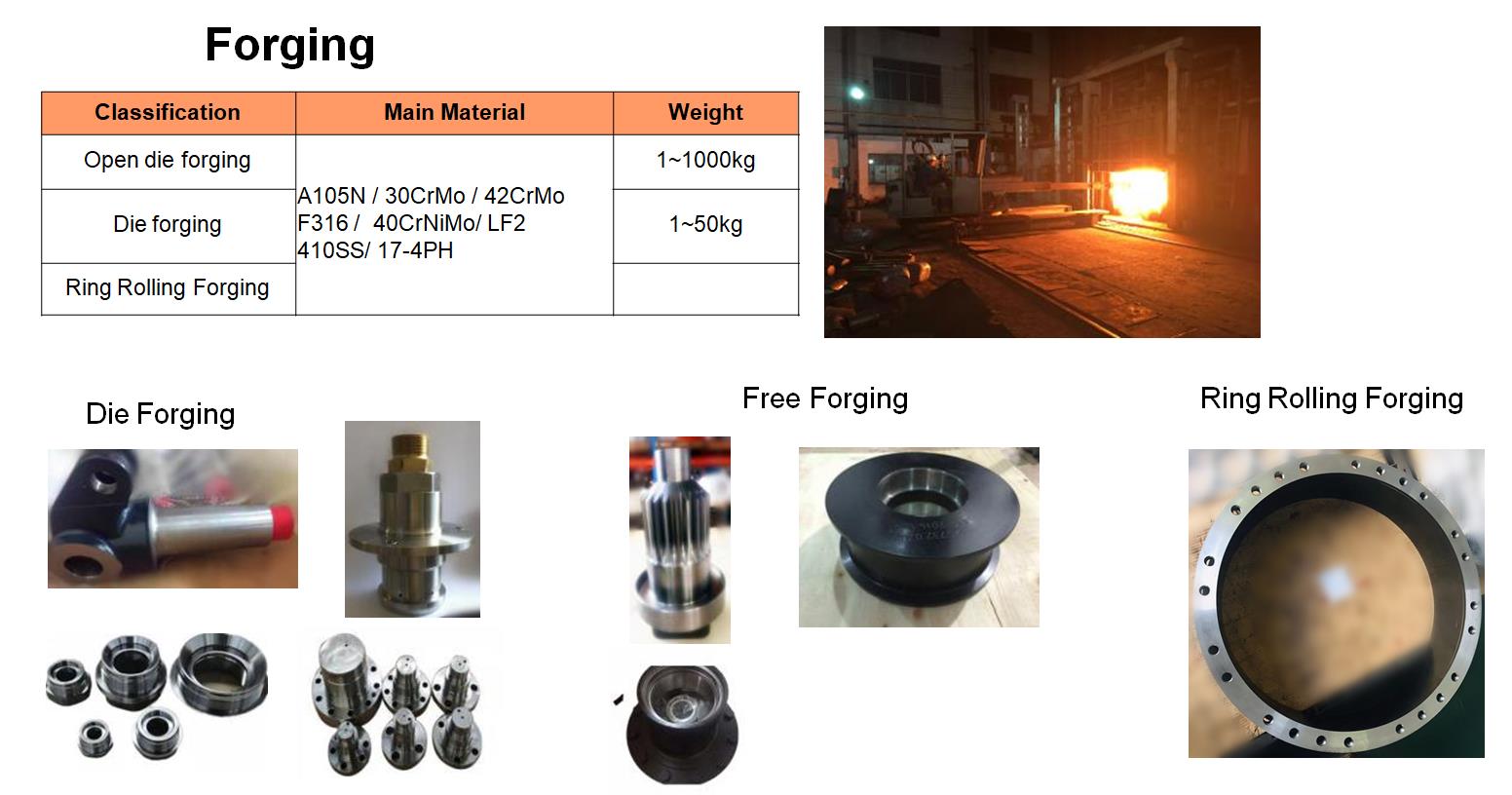

Inquiry

Project Review

Machining

Quality Control

Pass/Fail

Delivery
Metal forging is an ancient metalworking process that has been used for centuries to create strong, durable metal parts. It involves heating metal to a high temperature and then shaping it with force using a hammer or press. The process of forging produces parts with exceptional strength, toughness, and resistance to impact and fatigue, making it a preferred method for manufacturing high-performance metal parts.
Forging can be done with various metals, including steel, aluminum, titanium, and copper alloys. There are different types of forging, including open-die forging, closed-die forging, and ring rolling. Open-die forging, also known as smith forging, involves shaping the metal by hammering it between flat dies. Closed-die forging, also known as impression-die forging, involves shaping the metal between two dies, with the desired shape formed in the die cavity. Ring rolling is a specialized form of closed-die forging used to make seamless rings.
Metal parts forging is commonly used in a wide range of industries, including aerospace, automotive, construction, and manufacturing. The process is used to manufacture parts such as gears, shafts, bolts, connecting rods, and other components that require high strength and durability. These parts are often used in applications that require exceptional reliability, such as in aircraft engines, oil and gas drilling equipment, and heavy machinery.
One of the major advantages of forging is its ability to produce parts with exceptional strength and toughness. Forged parts have a high level of structural integrity and resistance to fatigue, making them ideal for use in high-stress applications. They also have a uniform grain structure that enhances their strength and durability.
Forging can also produce parts with a high level of precision and dimensional accuracy. This is due to the use of closed dies, which allow for tighter tolerances and greater control over the final shape and size of the part. As a result, forged parts often require minimal machining after they are made, which can save time and reduce production costs.
In addition to its strength and precision, metal parts forging is also an environmentally friendly process. Because it does not rely on cutting and shaping metal using material removal methods, there is very little waste produced during the forging process. This makes forging a more sustainable manufacturing process compared to other metalworking methods.
In conclusion, metal parts forging is a versatile and reliable manufacturing process that is widely used in various industries. Its ability to produce parts with exceptional strength, toughness, and dimensional accuracy make it a preferred method for manufacturing high-performance metal parts. Whether it is for aerospace, automotive, or heavy machinery applications, the use of metal parts forging provides an effective and sustainable solution for creating durable and reliable metal parts.


AJL Machining is a professional and industry-leading one-stop shop for custom metal parts services. We have our own factory and a reliable network of partners that enable us to cater to your requirements ranging from prototypes to large-scale production.
Add: Building 5, No. 58 Chenghu Road, Kunshan Development Zone, Factory Area, West Unit, 1st Floor Workshop North and 1st Floor Barrier North
Email:sales@ajlmachining.com
Tel: +8613522650203